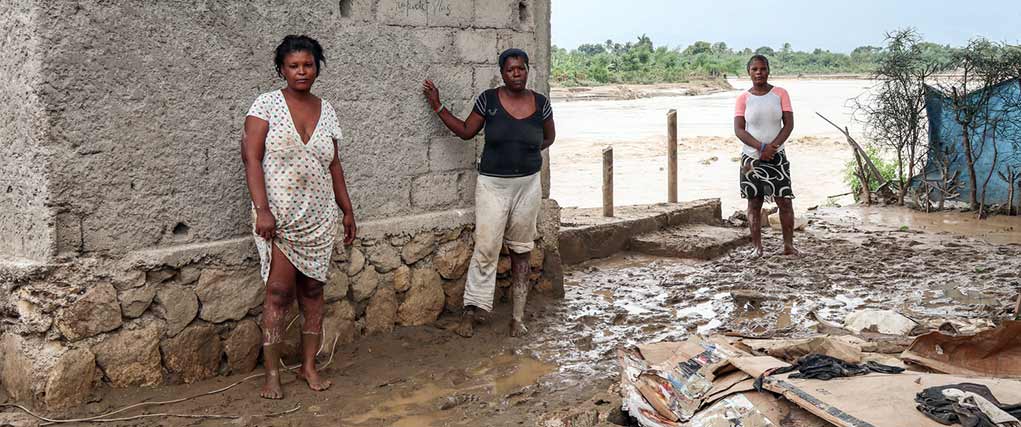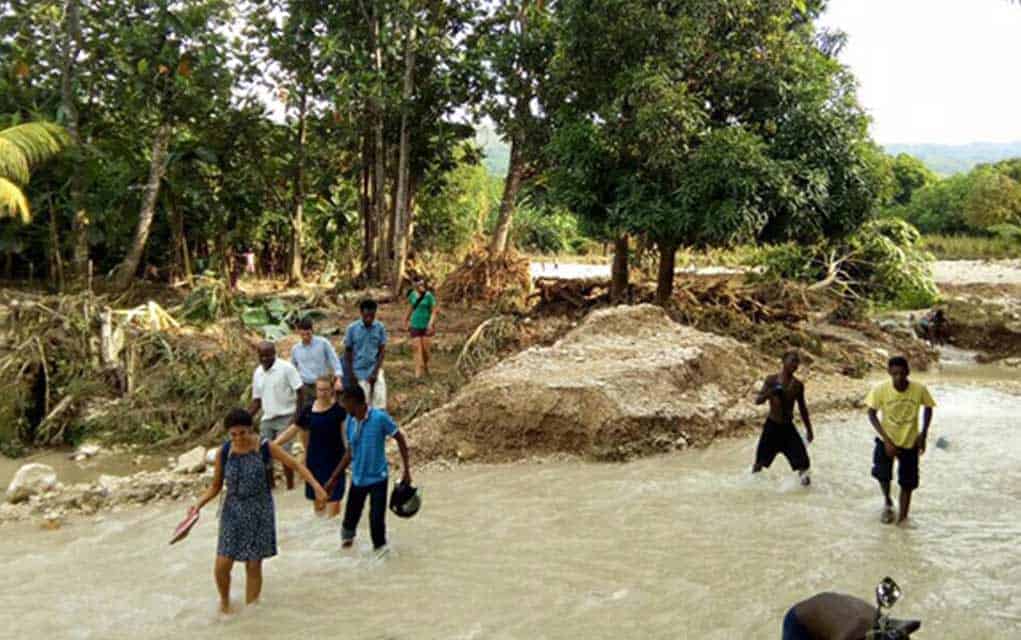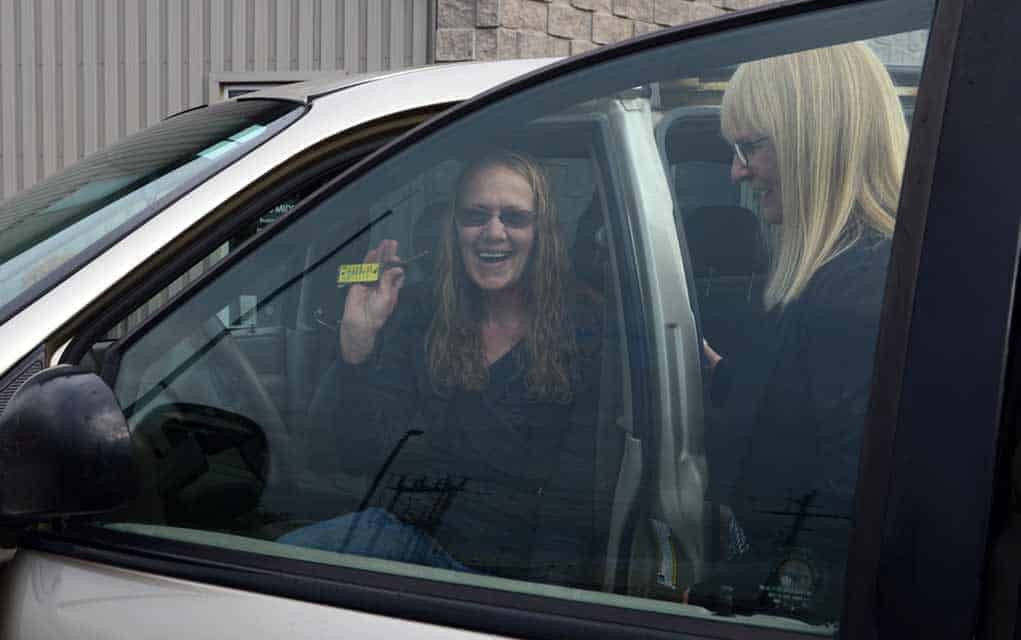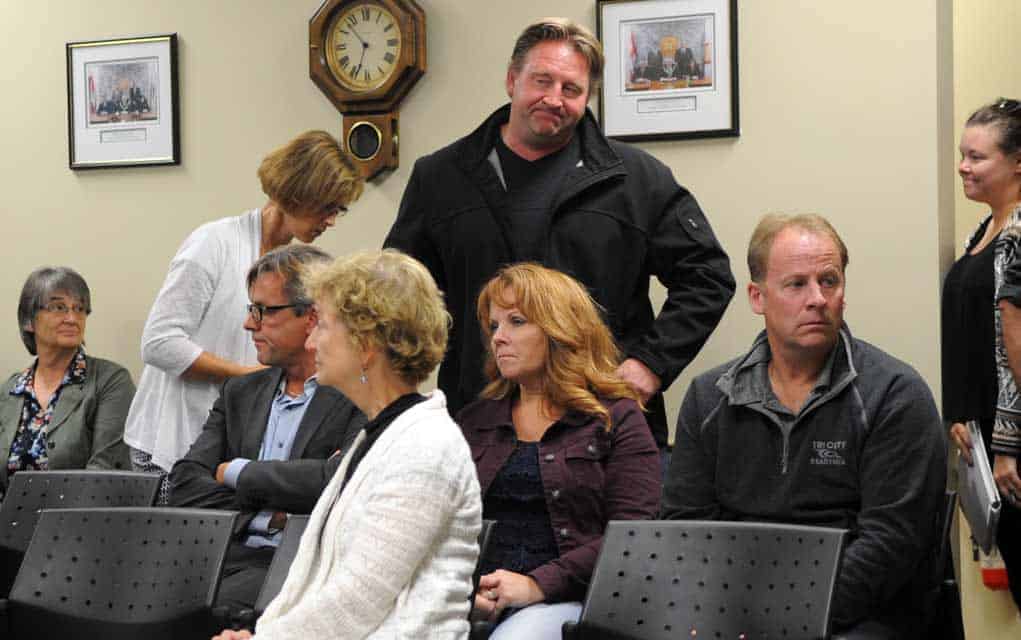It has been weeks since the powerful category-five hurricanes Irma and Maria struck in the Atlantic basin, but people are still taking stock of the damage. Buildings were flattened, fields were flooded and, basic necessities like clean water and food have become strained. With offices already in some of the affected countries, the Mennonite Central Committee (MCC) was able to respond quickly to the disaster, whilst Canadians were amongst the first responders on the ground.
“I want to say about 30 hours after Irma hit we were able to distribute comforters that a local MCC office [worked on] at Kent Street in Kitchener, and relief buckets, to families whose homes have been destroyed by the hurricane or badly damaged,” said Rebecca Shetler, the MCC representative in Haiti.

Speaking from out of the country, Shetler, a Waterloo native, described the MCC’s response in Haiti. She, along with 26 other staff including her husband, worked in the immediate aftermath of the storm to reach isolated communities that were hit with severe flooding.
“It means going to the communities, wading through the mud, hearing their stories, helping to tell their stories to a wider audience,” explains Shetler. She estimated that the group responded to about 23 rural communities.
According to Julie Bell of MCC Canada, the group was able to reach about 90 families in a region of the Artibonite Department of Haiti, with relief kits, blankets and water tablets in those first 48 hours after the disaster. Bell adds that the “MCC is currently the only NGO responding in this area of Haiti.”
“Since that initial rapid response, we mounted about five days later a longer term food response,” says Shetler.
“With families having their gardens destroyed, these are subsistence farmers. So that means they’re going to go hungry, they’re not going to be able to pay school fees. … When that’s destroyed, that’s devastating to those families.”
While Haiti escaped the worst of Irma and Maria, which damaged the likes of the Virgin Islands, Turks and Caicos and Puerto Rico, many communities nonetheless experienced significant flash floods that decimated crops and infrastructure. The country had already been coping with the much more extensive damage of last year’s hurricane Mathew when Irma hit, as well as a cholera outbreak.
“Haiti has the worst cholera epidemic in the world,” said Shetler. “And so with flooding there’s no latrines in most communities. The rate of infectious disease travels very quickly and vulnerable people, children, older people, die from cholera post-storms like hurricane Irma.”
The MCC, for its part, had already been working in Haiti to recover from hurricane Mathew and contain the cholera infection, and so they were well poised to respond to the crisis, noted Shetler.
“So it’s basic prevention that we found very effective after hurricane Matthew last year,” said Shetler.
“In Haiti that means building latrines, protecting public water sources like streams because these are not families with running water. Giving people filtration buckets so they can purify the water. Haitians want to be able to protect themselves and their families, they just don’t have the means to even build a latrine or to get a filtration bucket.”
Shetler notes in the communities where they were able to build latrines after Hurricane Matthew, there were zero cases of Cholera. “So it’s a very effective, basic prevention that we’re able to do.”
The MCC have also had long-lasting partnerships with other organizations in the country.
Besides its work in Haiti, the MCC has also been working on relief efforts in Cuba, as well as responding to crises around the world including in Syria, the Democratic Republic of Congo, and Mexico following last month’s earthquake. In Cuba, MCC Canada spokesperson Julie Bell explained the group are working with the Brethren in Christ Cuba to repair homes, provide emergency food assistance and provide “support for livelihoods recovery.”
With such a far-reaching projects, Shetler noted that funds for continued support in Haiti were quickly running low and encouraged people to give what they could, be it money or supplies.
“The Kent Street MCC office is always accepting comforters, relief buckets, [canned meats]. And we always appreciate prayers and the people thinking of the people in Haiti, because they’ve been through a lot.”
Shetler is currently in her second year of a five-year term with the MCC in Haiti. She’s a clinical social worker by trade, while her husband holds degrees in International Development and Public Health.
“So for us, our calling for Haiti – it was kind of a confluence. There’s tremendous need both at a basic health level for basic infrastructure. From a mental health perspective, there’s tremendous trauma after the [2010] earthquake and with successive disasters. So we hope we found a place where are skills and our passion met the need,” said Shetler.
“And the MCC is a wonderful organization that really walks alongside people in the way that we want to help people in their lives. So it’s a great match for us, and it’s really an honour to serve with MCC.”
People interested in contributing can pass by the MCC’s Kitchener office on 50 Kent Ave, or donate online at www.mcccanada.ca.









